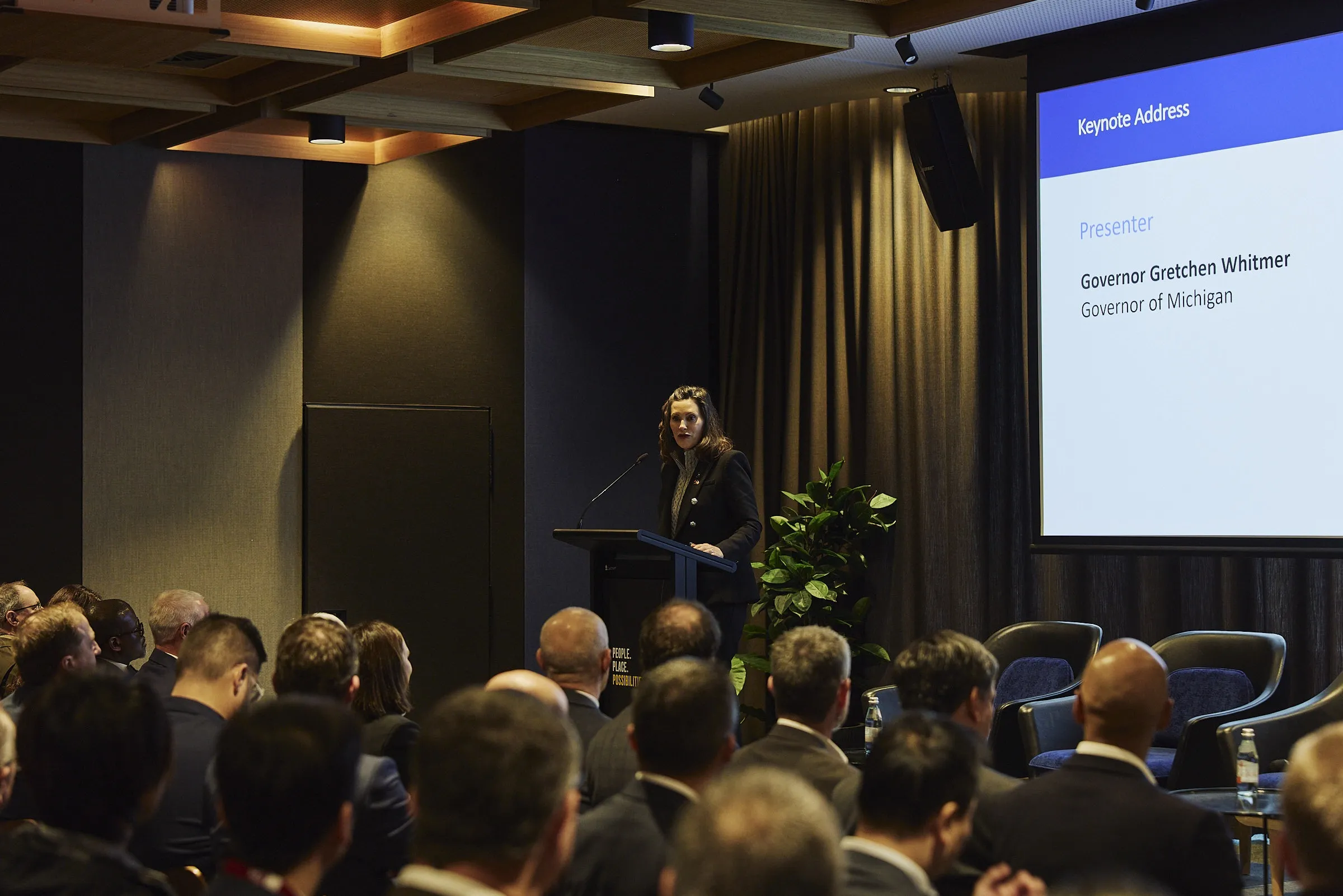More than 270 intelligent transport systems (ITS) professionals have recognised their peers for their outstanding contributions to the industry and community at the 2016 ITS Australia National Awards.
Winners included Ian Oxworth, who received the ITS Australia Max Lay Lifetime Achievement Award. Oxworth is responsible for the implementation and operation of EastLink’s 26 toll points and all other ITS systems.
Mapping specialist Here received the Industry Award for its open location platform (OLP) th
October 14, 2016
Read time: 3 mins
More than 270 intelligent transport systems (ITS) professionals have recognised their peers for their outstanding contributions to the industry and community at the 2016 858 ITS Australia National Awards.
Winners included Ian Oxworth, who received the ITS Australia Max Lay Lifetime Achievement Award. Oxworth is responsible for the implementation and operation of EastLink’s 26 toll points and all other ITS systems.
Mapping specialist7643 Here received the Industry Award for its open location platform (OLP) that provides a virtual representation of the real world to enable governments to better plan and manage road and street assets.
The South Australia Department of Planning, Transport and Infrastructure won the Government Award for the8497 Addinsight smartphone app and incident detection system that uses Bluetooth technology to connect to motorists’ mobile phones, providing verbal, real-time alerts via the phone’s loud speaker, hands-free kit or car stereo warning about unforeseen or unplanned traffic delays. The department also won a new award, the Automated Vehicle Award, sponsored by the Australian Driverless Vehicle Initiative (ADVI) for the first southern hemisphere driverless vehicle demonstration and legislation for on-road trials conducted November 2015.
The Research Award went to the University of Adelaide Centre for Automotive Safety Research won for its study into demonstrating how the safety benefit of connected vehicle technology is calculated by applying a collision avoidance system model to simulations of around 100 real world crashes to determine the change in impact speed, and highlighted how an improvement in positioning accuracy could be tuned to be more effective for incidents such as head-on crashes.
The Young Professional Award recognises an individual under 30 years of age who is making a positive contribution to the ITS industry and is demonstrating a passion through their studies and early professional life. This year, this award was taken out by Benjamin Hanly, project engineer from6770 SICE, with a Certificate of Achievement going to Candice Robinson an Assistant Engineering Manager with 8223 A.D. Engineering International.
Presenting the awards, treasurer Tim Pallas said it was fitting that in a week when more than 11,000 international ITS leaders travelled to Melbourne for the 23rd World Congress on ITS ,the Awards night was hosted in the world’s most liveable city.
Announcing ITS Australia’s milestone of passing of one hundred members, ITS Australia President, Brian Negus, said it has been a significant year for the organisation.
South Australian Transport and Infrastructure Minister Stephen Mullighan said the awards reflected the Government’s leadership in connected and autonomous vehicle technology. He congratulated James Cox, Mark Shotton and the team at the Department of Planning, Transport and Infrastructure’s Traffic Management Centre for their foresight in developing the state-of-the-art Addinsight app using Bluetooth technology.
ITS Australia CEO, Susan Harris said the annual ITS Australia National Awards are significant in recognising enduring commitment, rewarding current achievements and promoting future talent and congratulated the 2016 nominees and Award winners.
Winners included Ian Oxworth, who received the ITS Australia Max Lay Lifetime Achievement Award. Oxworth is responsible for the implementation and operation of EastLink’s 26 toll points and all other ITS systems.
Mapping specialist
The South Australia Department of Planning, Transport and Infrastructure won the Government Award for the
The Research Award went to the University of Adelaide Centre for Automotive Safety Research won for its study into demonstrating how the safety benefit of connected vehicle technology is calculated by applying a collision avoidance system model to simulations of around 100 real world crashes to determine the change in impact speed, and highlighted how an improvement in positioning accuracy could be tuned to be more effective for incidents such as head-on crashes.
The Young Professional Award recognises an individual under 30 years of age who is making a positive contribution to the ITS industry and is demonstrating a passion through their studies and early professional life. This year, this award was taken out by Benjamin Hanly, project engineer from
Presenting the awards, treasurer Tim Pallas said it was fitting that in a week when more than 11,000 international ITS leaders travelled to Melbourne for the 23rd World Congress on ITS ,the Awards night was hosted in the world’s most liveable city.
Announcing ITS Australia’s milestone of passing of one hundred members, ITS Australia President, Brian Negus, said it has been a significant year for the organisation.
South Australian Transport and Infrastructure Minister Stephen Mullighan said the awards reflected the Government’s leadership in connected and autonomous vehicle technology. He congratulated James Cox, Mark Shotton and the team at the Department of Planning, Transport and Infrastructure’s Traffic Management Centre for their foresight in developing the state-of-the-art Addinsight app using Bluetooth technology.
ITS Australia CEO, Susan Harris said the annual ITS Australia National Awards are significant in recognising enduring commitment, rewarding current achievements and promoting future talent and congratulated the 2016 nominees and Award winners.







